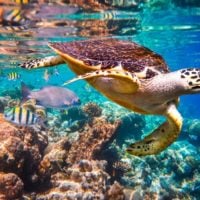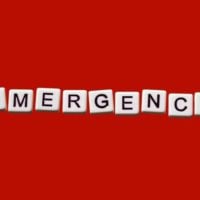Deadline: 06-Oct-21
The European Commission (EC) is offering grants for European Partnership Water Security for the Planet (Water4All).
The co-funded European Partnership Water Security for the Planet (Water4All) should address the following vision: “Boosting the systemic transformations and changes across the entire research – water innovation pipeline, fostering matchmaking between problem owners and solution providers to ensure water security for all in the long term”.
Water4All should propose a portfolio of multi-national, multi-faceted and cross-sectoral approaches, encompassing policy, environmental, economic, technological and societal considerations to enable water security for all in the long term.
It should therefore be implemented through a joint programme of activities ranging from research and innovation programme coordination to new knowledge and innovation development, transfer to policy-making, operational implementation and demonstration of the efficiency of solutions.
Pillars
It should be structured according to the following pillars:
- Identify research and innovation priorities to strengthen alignment of EU and national RDI programmes and increase the impact and policy relevance.
- Develop new knowledge and innovative solutions for a systemic and inclusive approach to water challenges at operational scale (e.g. river basin, water catchment).
- Transfer knowledge and innovation to i) policy-makers and ii) operators / managers so that they are able to implement the proposed solutions.
- Demonstrate the efficiency and the sustainability of the proposed solutions at local level, in close cooperation with the relevant actors (including policy-makers and decision-makers).
- Increase and strengthen international cooperation to develop a critical mass in relation to the global challenges faced.
Funding Information
The check will normally be done for the coordinator if the requested grant amount is equal to or greater than EUR 500 000, except for:
- public bodies (entities established as a public body under national law, including local, regional or national authorities) or international organisations; and
- cases where the individual requested grant amount is not more than EUR 60 000 (lowvalue grant).
Expected Outcomes
Projects results are expected to contribute to all of the following expected outcomes:
- Increased protection of water resources and ecosystems and strengthening of biodiversity, by developing a more systemic and integrative policy which considers cross-sectoral interactions (water, biodiversity, agriculture, fisheries and aquaculture, energy, health).
- Enhanced resilience, mitigation and adaptation of water systems to climate change and multiple interacting stressors.
- Pooled resources (EU, Member States, Associated Countries, European platforms and economic sectors) and alignment within a shared and co-developed strategic research and innovation agenda (SRIA) and related implementation plans and better embedding of national and regional knowledge and innovation ecosystems within that of the EU.
- Leverage impacts of policies on the water security crisis, by upscaling projects (from research to demonstration) and supporting policy implementation based on cooperation, across stakeholders and sectors.
- Strengthened alignment between funders’ programmes and timelines and knowledge transfer, and addressing the lack of continuity of funding from research to implementation and difficulties in securing long-term investments.
- Greater cooperation across sectors, with multi-stakeholder engagement and empowerment, to co-develop and co-implement solutions and to drive the necessary societal transformations required for securing water for all.
- Reinforced role of the EU in the international water agenda (implementation of UN SDGs) and in strengthening water diplomacy.
- Science and evidence-based implementation of the European Green Deal and EU water-related policies.
Eligibility Criteria
To be eligible for funding, applicants must be established in one of the eligible countries, i.e.:
- the Member States of the European Union, including their outermost regions;
- the Overseas Countries and Territories (OCTs) linked to the Member States;
- eligible non-EU countries:
- countries associated to Horizon Europe;
- low- and middle-income countries.
For more information, visit https://bit.ly/3jWMwG7









































